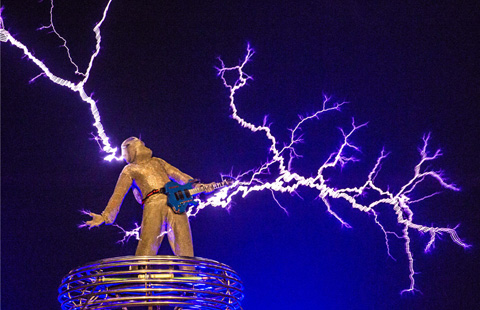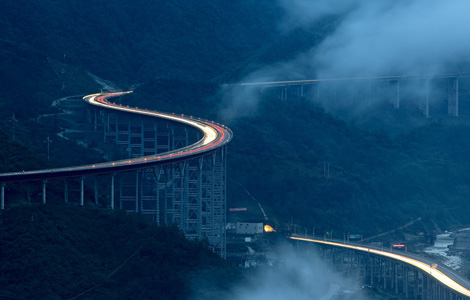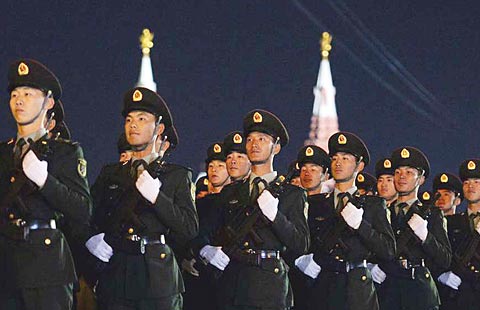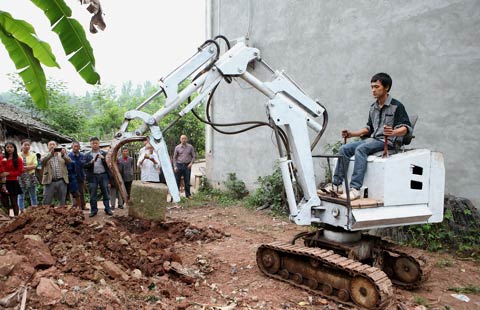Why Americans should be excited about the Silk Road Belt
Updated: 2015-05-08 15:15
By WILLIAM JONES(China Daily USA)
|
||||||||
There have been quite a few articles in the US press about President Xi Jinping's hallmark project of the Silk Road Economic Belt and the 21st Century Maritime Silk Road, dubbed by the Chinese as the "One Belt, One Road" project. Unfortunately, the reaction here has been either one of total indiff erence or of misguided concern that it is China which is launching such a major project encompassing ultimately around 40 percent of mankind. But most people have seemed to have missed the point entirely.
Maybe that is because the never-ending depression cycle in which the Western world seems to fi nd itself has had such a demoralizing eff ect on the population that they believe that these conditions are some kind of law of nature, and impossible to change. What China has shown is that these laws can be changed by the intervention of human ingenuity.
Up until now, the most devastated sections of the world were found in Asia, in Africa, and in Latin America, not in Western Europe or in North America. Now this is beginning to change. What has happened in China over the last thirty years has startled the world. Coming out of the devastation of the "cultural revolution" (1966-76), they have now become the second largest economy in the world. And with the savings they have accumulated, they are prepared to get to work in order to bring some of that development to their neighbors in Central and in Southeast Asia. Indeed, the infrastructure fever has already spread further, with growing enthusiasm in Latin America and Africa, where China, through the BRICS cooperation, is also making itself felt.
The key to development, as China has shown, is infrastructural investment. Remember when we used to do these things? But a look at our roads and our highways and our rail system gives a clear indication that we haven't thought about this for quite some time. Maybe it is time to start.
To give an indication of the tremendous infrastructural needs, Executive Intelligence Review issued a 370-page report at the end of last year entitled "The New Silk Road Becomes the World Land-bridge", which outlines many of the major infrastructural projects worldwide waiting to be realized. China has charted out a pathway with its "One Belt, One Road", but it can't do it alone, nor does it want to. At last year's APEC meeting in Beijing, President Xi invited President Obama to cooperate on this major undertaking. But the silence from the White House has been almost deafening.
We must, of course, change the way we do business. We cannot simply continue bailing out failing speculative fi nancial institutions, bankrupting our nation for the sake of the speculators. Banks should return to the business of providing credit for industry and not for gambling. We have to get back to the Glass-Steagall era, reinstating this crucial legislation, and protecting our commercial banking system, while at the same time letting the speculative investment banks deal with their own losses. Then we can start to rebuild our highways and our roads and our cities. And as former Maryland governor Martin O'Malley recently pointed out, the recent incidents in Baltimore [and in Ferguson] are ultimately based on our failure to grow the economy.
So instead of continually carping over China's growing infl uence, like we did with our campaign against the AIIB, why don't we start to cooperate instead. The political problems the United States has in Afghanistan and in the Middle East, (largely a result of our own failed policies), cannot be solved by military might. Only by changing the underlying conditions in those regions can we provide hope and a future for the great mass of young people who today are living in despair — and resorting to desperate measures by joining ISIL and Al Qaeda and similar formations.
The notion of bringing the world together in a major campaign of infrastructural investment is one of the most exciting developments in recent history. It is pointing the way out of the economic crisis, and the accompanying danger of war, which always stems fundamentally from economic causes. We must therefore revive the traditions that made this country great, the traditions that built the Erie Canal and the Transcontinental Railroad, and yes, the Moon landing. And we should be eternally grateful to China for reminding us what a successful economy actually looks like. And we should unite with China in the "One Belt, One Road" initiative and transform it into a global belt of development, a world land-bridge, that can bring prosperity and hope to all the peoples of the world.
The author is Washington bureau chief of Executive Intelligence Review.
(China Daily USA 05/08/2015 page16)

 Unusual but true: Breast milk ice cream just in time for royal baby
Unusual but true: Breast milk ice cream just in time for royal baby
 Candlelight vigil held for victims in Nepal earthquake
Candlelight vigil held for victims in Nepal earthquake
 Across Canada (May 8)
Across Canada (May 8)
 Ten photos you don't wanna miss - May 7
Ten photos you don't wanna miss - May 7
 Siberian tiger cubs in NE China
Siberian tiger cubs in NE China
 The wonders of the Yaxi Expressway
The wonders of the Yaxi Expressway
 China joins rehearsal for Victory Day parade in Moscow
China joins rehearsal for Victory Day parade in Moscow
 Man impresses with home-made excavator
Man impresses with home-made excavator
Most Viewed
Editor's Picks

|

|

|

|

|

|
Today's Top News
Economic projects assist 'Belt and Road Initiative'
Chinese team helps heal Nepal
Joint anti-graft push needed, US delegates told
US NSA's phone spying program ruled illegal by appeals cour
US to launch federal probe into Baltimore police practices
AIIB 'backfired' on
US: Expert
China pledges continued help as Nepal rebuilds
Annual China-US air passenger trips top 6m
US Weekly

|

|






